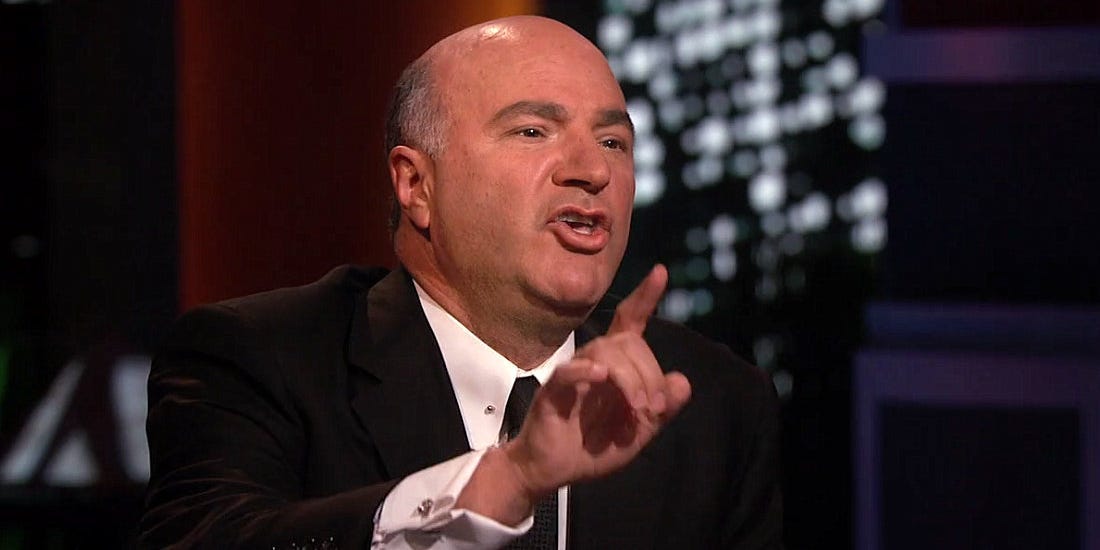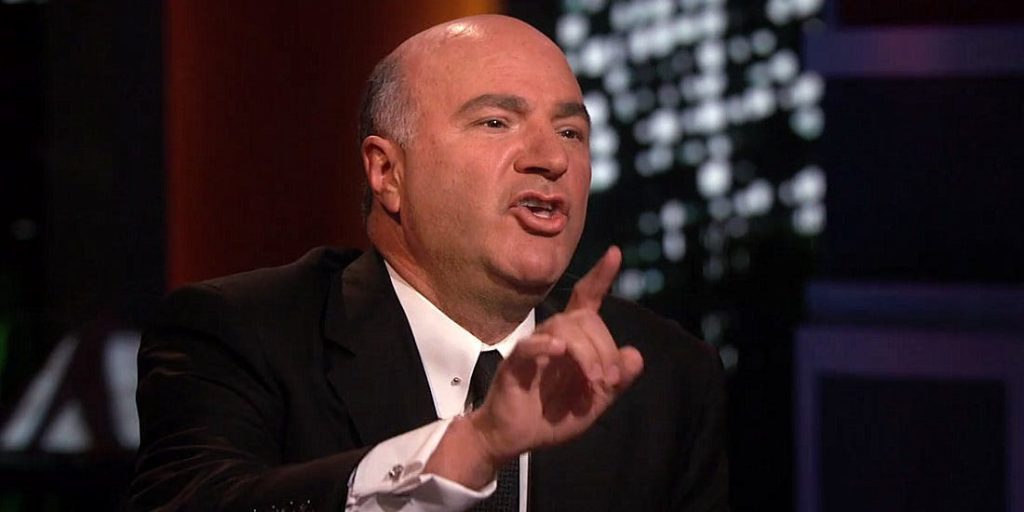
"Shark Tank"/ABC
- Kevin O'Leary explained why governments won't be able to put a lid on cryptocurrencies in a recent interview.
- The "Shark Tank" star spoke about the tipping-point for institutions getting into bitcoin and his involvement in making it ESG-compliant.
- He shared what would prompt him to bump up his bitcoin allocation to 5%, and outlined what it would take to get a yield off his holding.
- Sign up here for our daily newsletter, 10 Things Before the Opening Bell.
Famed investor Kevin O'Leary called bitcoin the "granddaddy" of digital assets and explained why he thinks governments will be unable to ban cryptocurrencies, speaking in a "Bitcoin Magazine" podcast with hosts David Zell and Matt Odell on Tuesday.
The "Shark Tank" co-host, who is a major shareholder in a new DeFi investing company, also spoke about bitcoin's move to becoming ESG-friendly and what the tipping point for institutional adoption will be – and how that could help its price eventually skyrocket.
Here are 10 highlights from O'Leary's interview, lightly edited and condensed for clarity:
1. "I'm never going to sell it, I'm not going to trade it. I'm going to own it, and I anticipate it will appreciate over time and probably beat the S&P 500 index." – on considering bitcoin as property, not currency.
2. "I'm not going to try and trade in and out of price adjustments. I'm going to allocate 3% – and if the price drops, I'll buy more. That's the whole point." – on bitcoin's volatility being problematic for institutional investors.
3. "The institutional investor is not on board yet. But my thesis is: when we resolve the issues around bitcoin right now in the next couple of years, and allocation starts happening from sovereign funds and pension plans, you're gonna see a material appreciation in price." – on value appreciation over time.
4. "The most desirable asset in crypto is bitcoin - it is the gold standard of crypto." - on institutions considering allocations to cryptocurrencies.
5. "I don't see a situation where it's going to be made illegal anywhere, and the thesis is the genie's out of the bottle. Bitcoin is distributed all around the world and used as property, and currency, in every country on Earth. And so, I don't really see, even if one country says they're going to make it illegal, how they're exactly going to do that." - on bitcoin being regulated by governments.
6. "Regulating it out of existence is a low probability as far as I'm concerned. Not going to happen. In fact, it's going the other way." - on regulators having to deal with bitcoin's use.
7. "The world is going to move towards digital currency. Bitcoin was the beginning of that, it is the granddaddy of it all, which is why it's so desirable." - on the inevitability of digital currencies being the future.
8. "I have had many discussions with some of the larger players in bitcoin in terms of ownership and assets. And the reason we have a collective interest in it is that we see the logjam being broken up, and then institutions coming into an asset class we already are positioned it - that's a very attractive outcome." - on being involved in bitcoin's move to becoming ESG-friendly.
9. "I'm looking at increasing my allocation. Next stop will be 5% on bitcoin (from 3%) and at the same time investing in infrastructure so that I can actually do the same thing that anybody else wants to. I would like to actually make yield off my coin, and that involves getting a platform that allows me to do that easily, compliantly with tax reporting." - on his investment in institutional tax-compliant platforms for bitcoin that are just starting up.
10. "Bitcoin is volatile. There's no question about it. But I think everyday we move towards more adoption at the institutional level. But there's going to be the proverbial tipping point when all of a sudden one or two or three large institutions do an allocation, and you're going to see the price of bitcoin skyrocket." - on the digital asset overcoming ESG hurdles.
